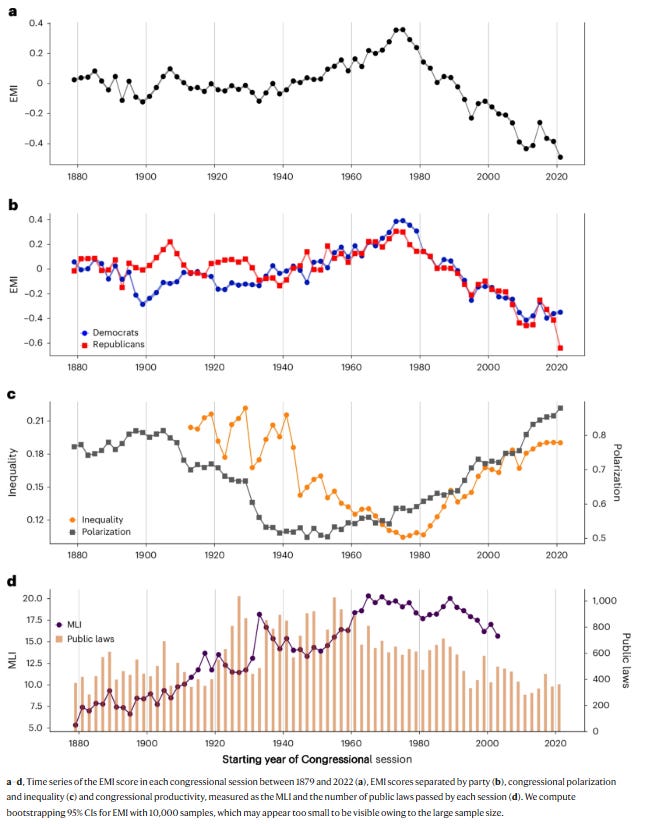Here in the UK, we have had a week of assessments of Labour’s first year in office. To be frank, I think it was one big disappointment after another. At the end of last year, I was so desperate about the broken politics in the UK that I read Ian Dunt’s “How Westminster Works… and Why It Doesn’t.”
On the one hand, I highly recommend the book to anyone interested in the British political system, because it explains in great detail why the British political system is completely unfit for purpose and why it doesn’t matter if the Conservatives, Labour or Reform are in power. Neither party is able to change the system, enact consistent long-term policies or even put competent people into ministerial roles.
On the other hand, I warn everyone of the book who thinks the government runs the country, because it explains in great detail why the British political system is completely unfit for purpose and why it doesn’t matter if the Conservatives, Labour or Reform are in power. Neither party is able to change the system, enact consistent long-term policies or even put competent people into ministerial roles.
It’s depressing, really. But cheer up, it could be worse. We could be the US.
Stephan Lewandowsky and his collaborators have published a computational analysis of US congressional speeches, which reveals the descent into complete dysfunction in all its numerical detail.
Using large language models, they analyse the speeches given in Congress between 1879 and 2022 and score them on an Evidence-Minus-Intuition (EMI) scale. In essence, a speech that relies exclusively on facts would get a score of +1, while a speech based entirely on intuition and no facts gets a score of -1. Below are two examples, one for a speech that rates in the top 1% on the EMI scale and one that rates in the bottom 1%.
Excerpt from a speech that ranks in the top 1% by EMI:
“Yes. The Senator can get them in detail I am sure from the report of the Federal Trade investigation. Before I conclude I shall give some figures as to some of the holding companies and subsidiaries, and some figures applying to all of them showing the fictitious capital stocks and bonds which have been floated and sold to an innocent public, for which absolutely no real value existed.”
Excerpt from a speech that ranks in the bottom 1% by EMI:
“I can give the Senator an illustration. I had some ancestors who were very smart people but fought for the Stuarts in Great Britain against Puritanism and the Commonwealth and the Parliament. They were wise men individually but historically they were asses. Does the Senator understand the illustration? Their successors partially in my person have confessed that they were asses.”
Using two-year rolling averages, here are the average EMI score in Congress (panel a), the average EMI score for Republicans and Democrats (panel b), measures of political polarisation and income inequality in the US (panel c), and measures of Congressional productivity (MLI) and the number of laws passed (panel d).
Congressional speeches over time
Source: Aroyehun et al. (2025). Panel a: Average EMI score in Congress. Panel b: Average EMI score for Republicans and Democrats. Panel c: Measures of political polarisation and income inequality. Panel d: Measures of Congressional productivity (MLI) and the number of laws passed.
Looking at the charts, I wish this were the 1970s, the height of evidence-based politics. Instead, we live in an era that is the least evidence-based in more than 150 years and is indeed dominated by intuition over facts, a phenomenon we have hardly seen at any time before the 1990s.
Importantly, politicians from both major parties are guilty of abandoning facts and using more intuitive language and an appeal to emotions. Meanwhile, political polarisation and inequality in the US at large have increased since the 1980s, starting at roughly the same time as speeches began to be more intuitive and less evidence-based.
I cannot help but think that these two forces reinforce each other. To appeal to a broader audience, politicians used more intuitive language and fewer evidence and facts. This, in turn, increased polarisation among the public between people who believed the intuitive and emotional appeals of politicians and people who didn’t. And as the public became more polarised, there was less room for evidence and facts. Politicians were forced to scream louder and louder, appealing more and more to emotions and intuition.
So here we are then. A country that is more polarised than at any time since the Civil War, where facts count for less and less, especially among politicians and where consequently, politicians cannot agree with their political opponents and form compromises. The result is a legislative stalemate and a country increasingly unable to reform itself or pass even minor legislation.
Maybe it is time we inscribe the entrance to Congress with Dante’s wise words: “Lasciate ogne speranza, voi ch'intrate.”
Happy Independence Day to all my readers in the US.





"There is a cult of ignorance in the United States, and there has always been. The strain of anti-intellectualism has been a constant thread winding its way through our political and cultural life, nurtured by the false notion that democracy means that 'my ignorance is just as good as your knowledge'.” -- Isaac Asimov, 1980
Friday’s are supposed to be funny posts…